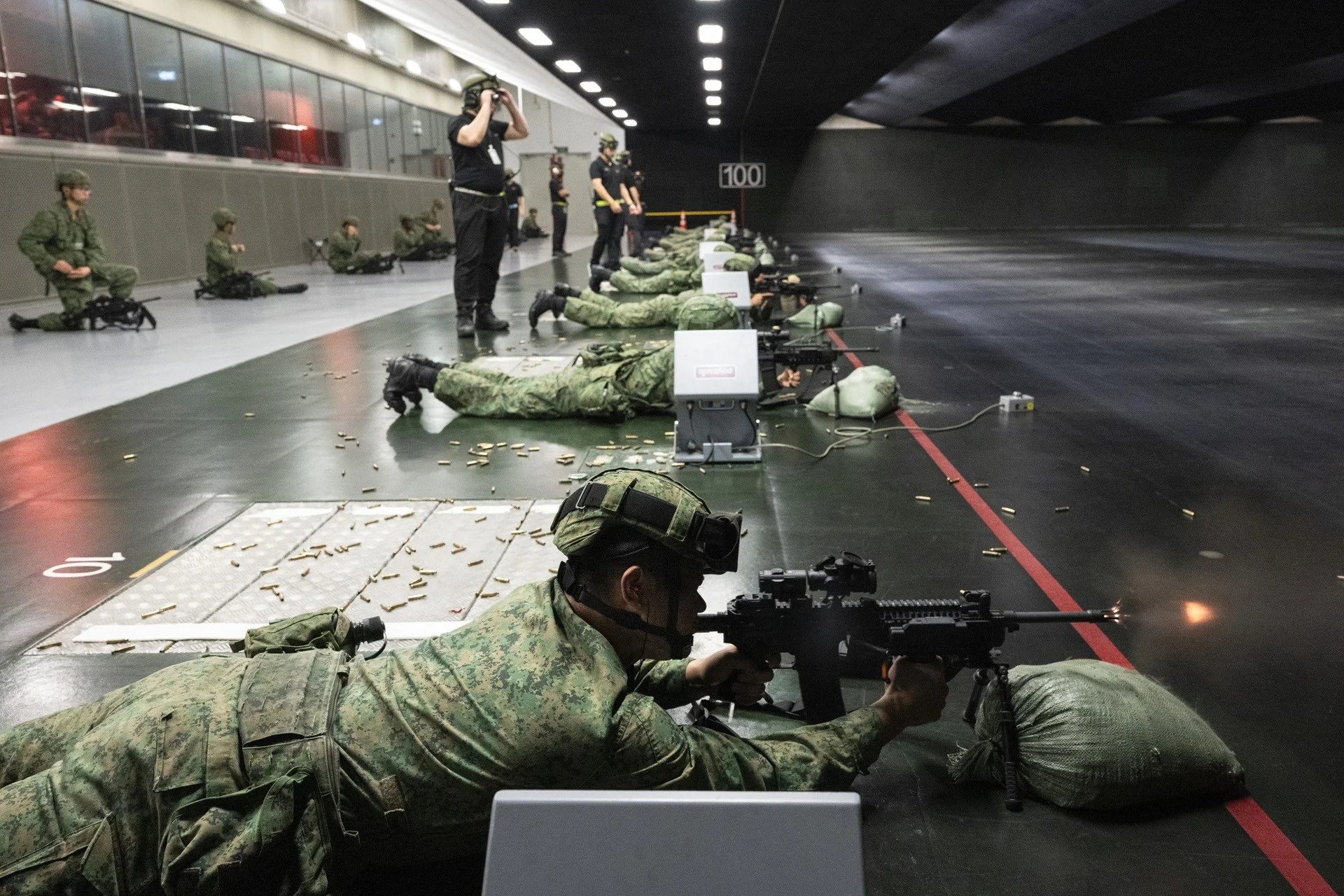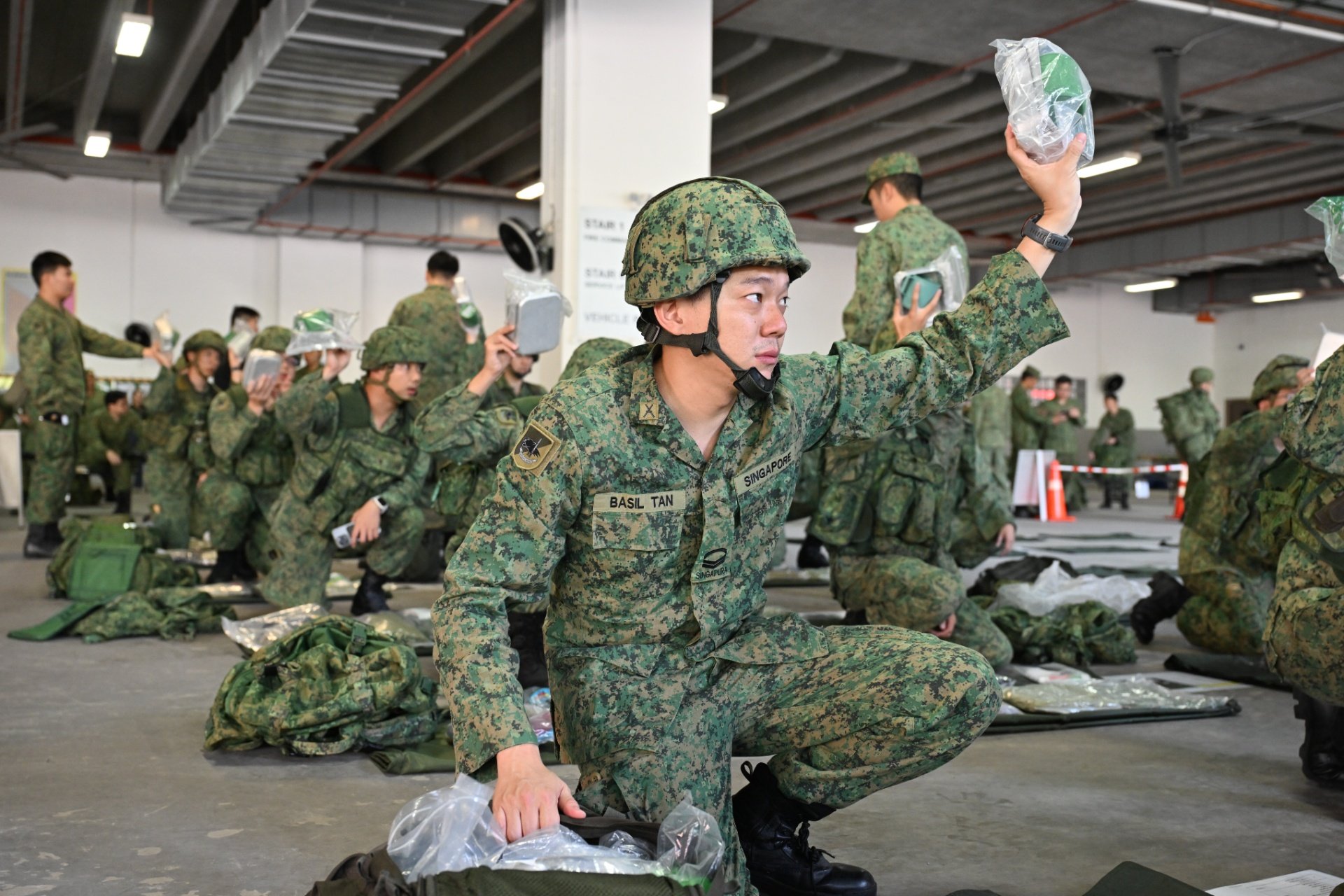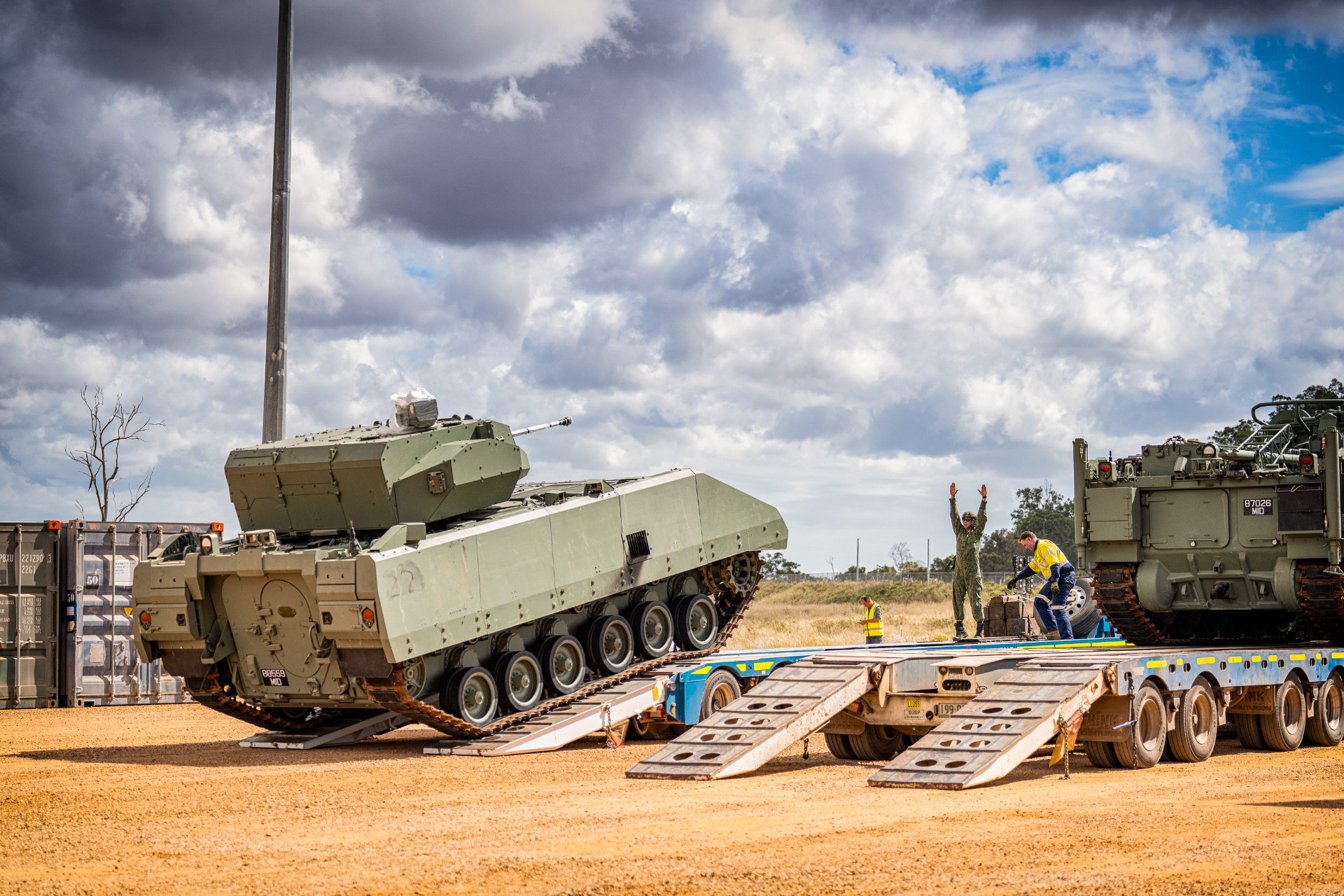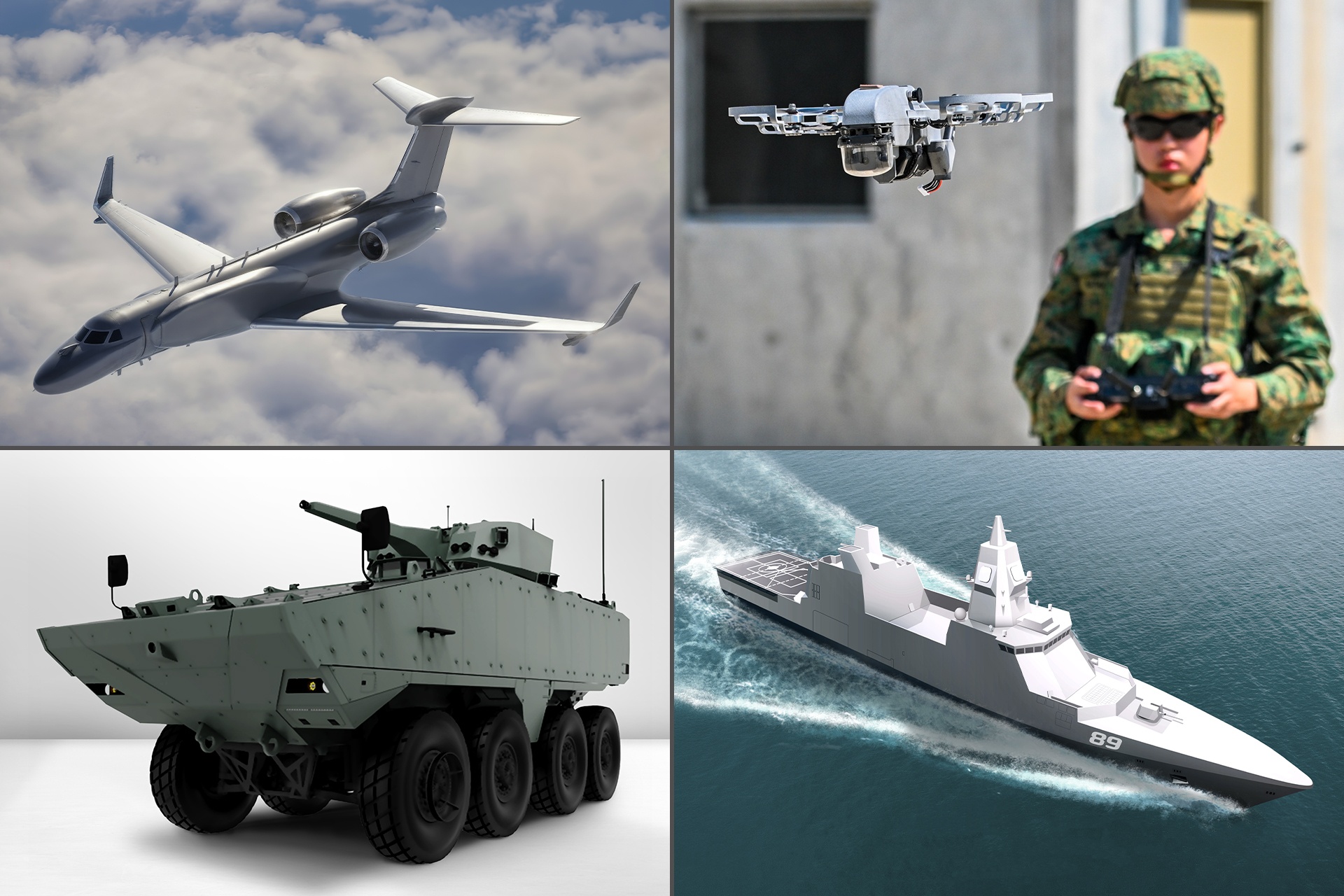It's a lull period for most in December but the troops from the Singapore Armed Forces' (SAF's) 8th and 9th Battalions, Singapore Infantry Regiment (8 and 9 SIR) keep constant vigil to ensure that Singapore is safe 24/7.
It is 10 o'clock in the morning when a shrill siren at 9 SIR's operations room at Jurong Island sounds.
The Protection of Installation (POI) troopers on standby jump into action. They quickly draw out their equipment, which enables them to respond to incidents like intrusions and bomb threats, don their bullet-proof vests, mount the General Purpose Machine Gun (GPMG) onto the POI Security Vehicle (PSV), and make one last check to ensure that their equipment is sound.
In minutes, the troopers are ready to depart for the oil refinery where the alarm sounded. Upon confirmation of the situation, they perform cordon-and-search operations for the potential perpetrators, who had escaped onto the island after setting off a bomb at one of the berths.
"Handshakes" for better responses
This is an example of the drills that 9 SIR troopers conduct regularly with the over 100 petroleum and petrochemicals companies on the island. Involving other homeland agencies such as the Singapore Police Force (SPF) and the Police Coast Guard (PCG), these drills help strengthen responses to security breaches, explained Captain (CPT) Ibrahim Bin Abdul Karim, an Officer Commanding in 9 SIR.
Comparing the drills to a handshake, CPT Ibrahim said: "It's a chance for us to get to know one another better. The (response) plan is getting better as we cooperate with one another."
Operations like this are examples of the SAF's contributions to homeland security, and POI troopers have been a mainstay at KINs, or key installations, like Jurong Island, Sembawang Wharves and Singapore Changi Airport, since 2001.
To prepare them for their deployment at the KINS, 9 SIR POI troopers undergo nine weeks of specialised training in POI operations. The training includes drills in using baton-torches (which can be used for self-defence or subduing intruders), chemical defence drills (where they learn to continue their work in a toxic environment), and conducting cordon-and-search operations.
Major (MAJ) Abdul Hannan, 9 SIR's training and operations officer, pointed out that unlike conventional operations (where troops travel in a group with their commanders), troopers travel in pairs during POI operations and have to shoulder the responsibility of making informed decisions on the spot.
He explained: "If the guys see anything suspicious that needs immediate attention, they have to react and make a decision there and then."
Larger role in homeland security
The SAF is a key stakeholder in homeland security and will continue to perform a significant role in the light of transnational terrorism threats, said Senior Lieutenant Colonel (SLTC) Man Jun Hoe, the deputy commander of the SAF's Military Police (MP) Command. The MP Command is the executive headquarters for POI and camp security operations.
In the past, POI operations were shared among infantry units but a dedicated unit - 9 SIR - as formed in 2010 to enable the SAF to fulfil its larger responsibilities. "If there are new KINs that we need to protect, we have the flexibility of increasing our commitment with 9 SIR," said SLTC Man.
These transnational terrorism threats also gave the SAF impetus to strengthen the security and protection of SAF camps and bases. To meet the new operational demands, 8 SIR was formed in 2010, a battalion dedicated to overseeing security operations at all military camps and bases.
With the integration of all Security Troopers in one unit at 8 SIR, their training and other security procedures are now standardised and strengthened. These include the issuing and returning of ammunition, screening and access control procedures.
"Because there is unity of command, in the event that an incident occurs in one camp, information can be disseminated quickly to the other camps and bases so as to heighten security measures if need be," added SLTC Man.
Managing difficult visitors
The established procedures include managing difficult personnel entering SAF camps and bases. Ask 1st Warrant Officer (1WO) Lee Chor Hwee about some of the challenges that Security Troopers face while dealing with visitors at camps' guardrooms and he lists them easily: Those who don't follow instructions, try to bring contraband items into SAF camps and bases and who verbally abuse the troopers.
These are some of the challenges that the Regimental Sergeant Major (RSM) of 8 SIR heard from his team of security troopers since he assumed the appointment three years ago.
To help the Security Troopers deal with difficult situations and ensure that their skills are always kept up to date, refresher lessons and courses are conducted for the soldiers when they are off-duty. Their commanders re-enact possible scenarios in class for discussion to hone their responses to different scenarios. The troopers also revise soldiering fundamentals such as weapon handling and shooting.
"Our 8 SIR security troopers are the first and last line of defence," said 1WO Lee. As the first point of contact with the public, the Security Troopers ensure that contraband items are not brought into the camps and bases, and as the last line of defence, they check to make sure that controlled equipment and sensitive documents are not brought out of camps.
Always ready to go
For 23-year-old Lance Corporal (LCP) Max Surmargo, being a trooper in 8 SIR's Quick Response Force is a source of pride. In this role, he reinforces security at SAF camps and bases when situations such as riots and bomb blasts occur.
Equipped with close-combat skills and trained in urban operations, LCP Sumargo said: "The first few times we did our turn-outs (which simulate real-life activation), we were really clumsy, but as we kept doing it and the more we were exposed to more scenarios, the better we became. We became faster and more prepared, and over time, more confident."
Even though LCP Sumargo, who was enlisted in February, has not yet been activated for a real incident, regular turn-outs keep him and his platoon mates on their toes. "There's always a sense of urgency. I'm so used to turn-outs that if I hear any loud sound (he mimics being jolted), I'm ready to go," he said.
"(The troopers) are well trained, ready and operational... They give people a sense of confidence when they see them," said SLTC Man on the important roles that troopers from 8 and 9 SIR play.





